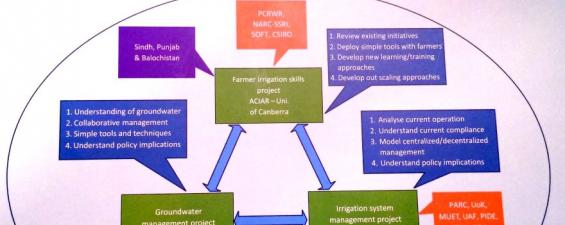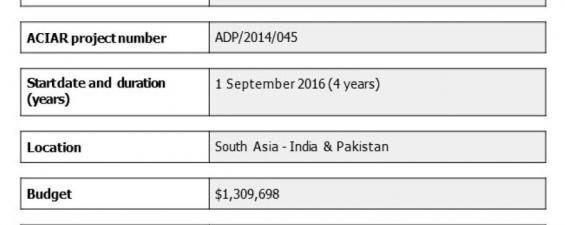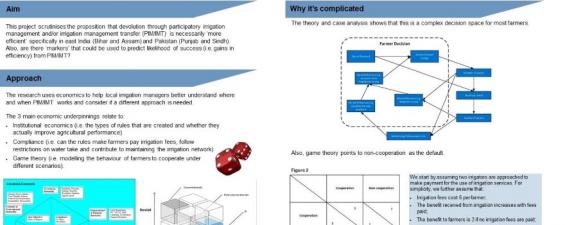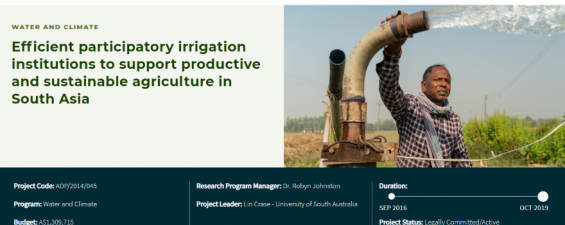Ensuring that water is allocated appropriately across the farming community and is delivered at the right time is a huge responsibility. In a bid to improve decisions, policy-makers have been increasingly involving farmers through Participatory Irrigation Management (PIM). However, PIM has had mixed results. This project closely studied four diverse irrigation communities to understand why the policy levers are sometimes ineffective.
Household surveys, including women’s perspectives, revealed how local social norms and values affected the motivation for farmers to cooperate and comply. The team has trained policy makers and officials to undertake
similar analyses in future. This will maximise the efficient and productive use of water through effective farmer engagement.
Optimal use of water for irrigation in South Asia could deliver economic, environmental and social benefits on a massive scale. Involving farmers in decision-making about water has been seen as vital. Participatory Irrigation Management (PIM), also known as Irrigation Management Transfer (IMT), was meant to achieve this. However, experience has shown that PIM/IMT is not a “silver bullet” - simply devolving decisions to farmers is not always effective.
This project studied how the systems for supplying water to farmers are managed in Bihar and Assam, east India, and Sindh and Punjab provinces, Pakistan. Firstly, extensive household surveys across these four diverse regions created essential data. Careful analysis then revealed how different types of devolved decision-making can work best for farmers in different settings. Many localised issues such as organisational capacity, environmental issues, technical factors and social norms and values must also be carefully considered.
Thanks to this research, policymakers know how and why factors (such as compliance by farmers and performance of institutions) vary between localities. In addition, gender differences have been ignored in the past, yet the project demonstrates that policy must take account of the role of both men and women farmers, if it is to be effective.
The project team collaborated closely with policy makers and irrigation officials, demonstrating the insights that can be gained by thorough community research and analysis. This involved training and capacity development as well as high-level briefings for senior government officials. Through this deep engagement at both village level through to senior government level, the project team have provided a rich legacy. The skills and know-how gained will help to strike a better balance between centralised and decentralised decision-making about this vital resource.
Partners
- University of South Australia
- Council on Energy
- Environment and Water
- Indian Institute of Management
- Mehran University of Engineering and Technology
- Pakistan Agricultural Research Council
- Pakistan Institute of Development Economics
- Punjab Irrigation and Drainage Authority
- Sind Irrigation and Drainage Authority
- University of Adelaide
- University of Agriculture
- University of Karachi






